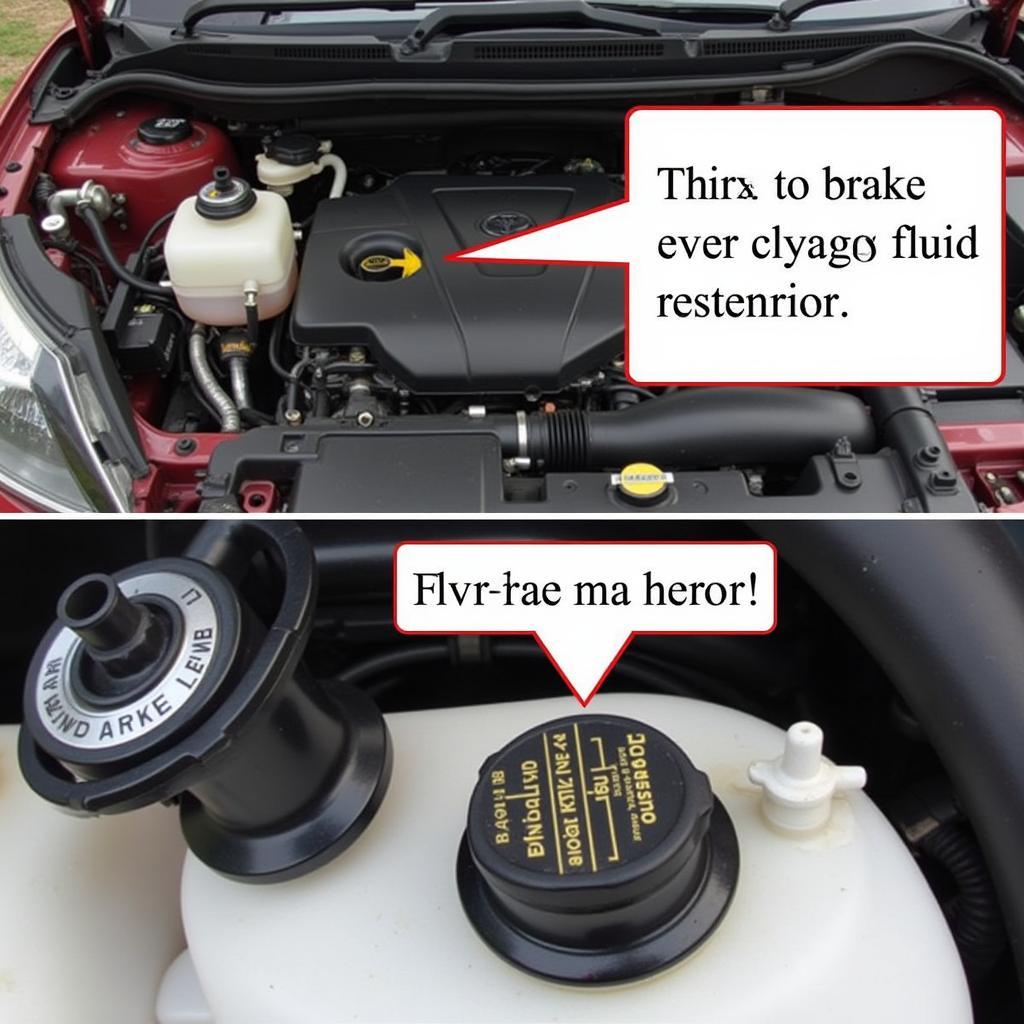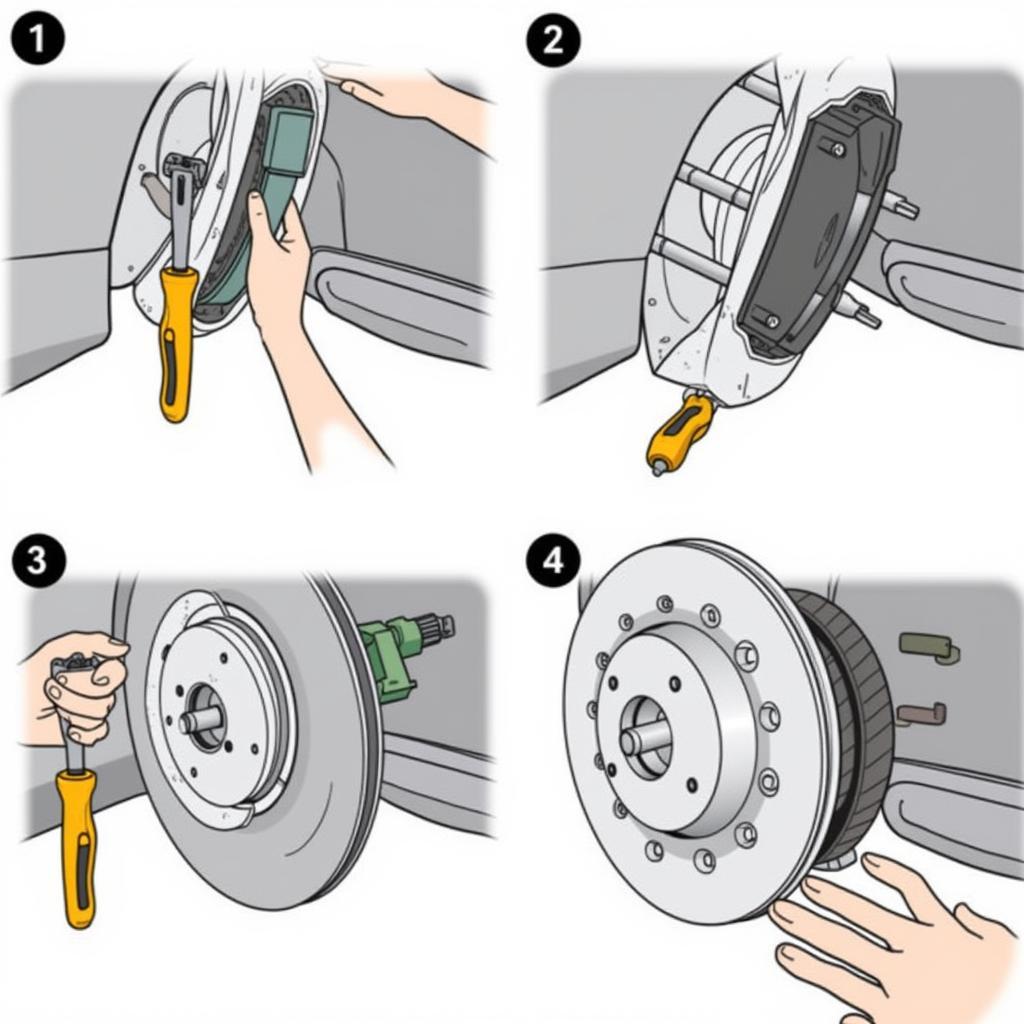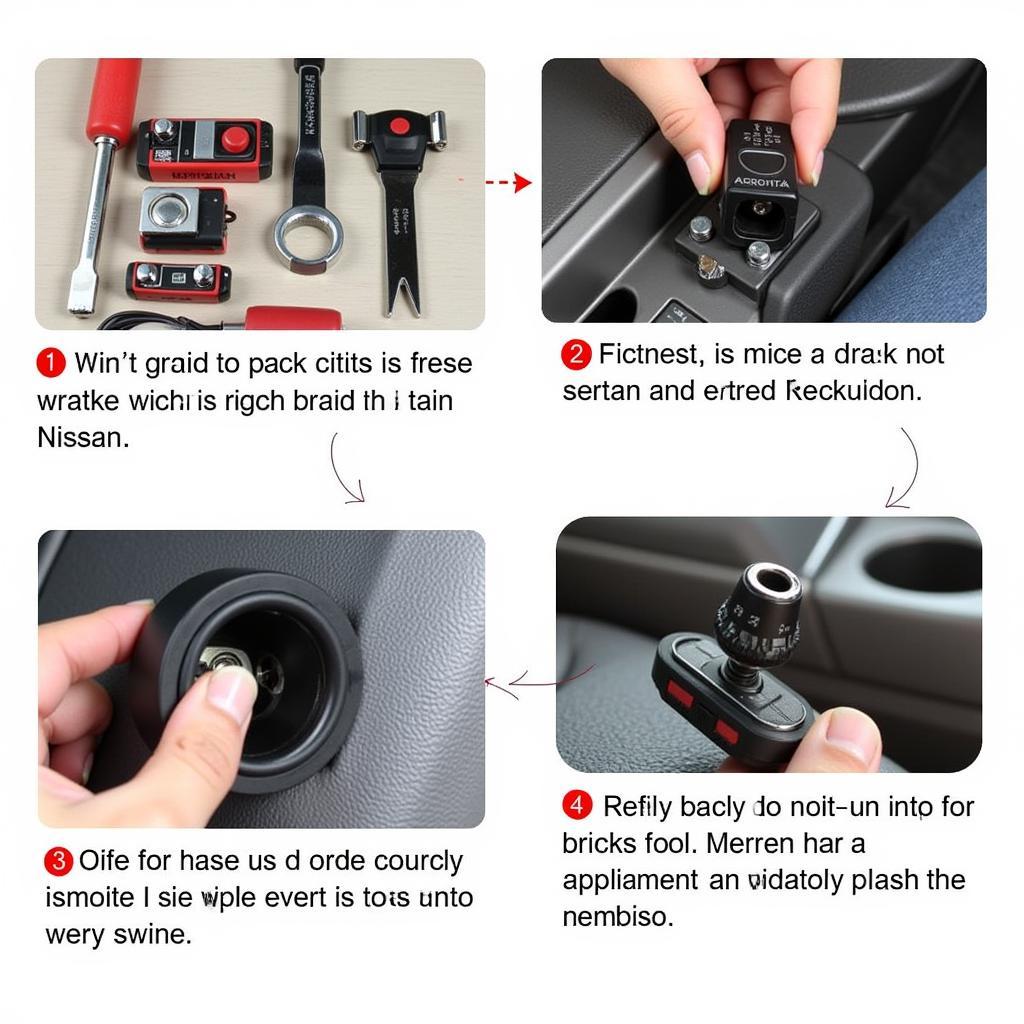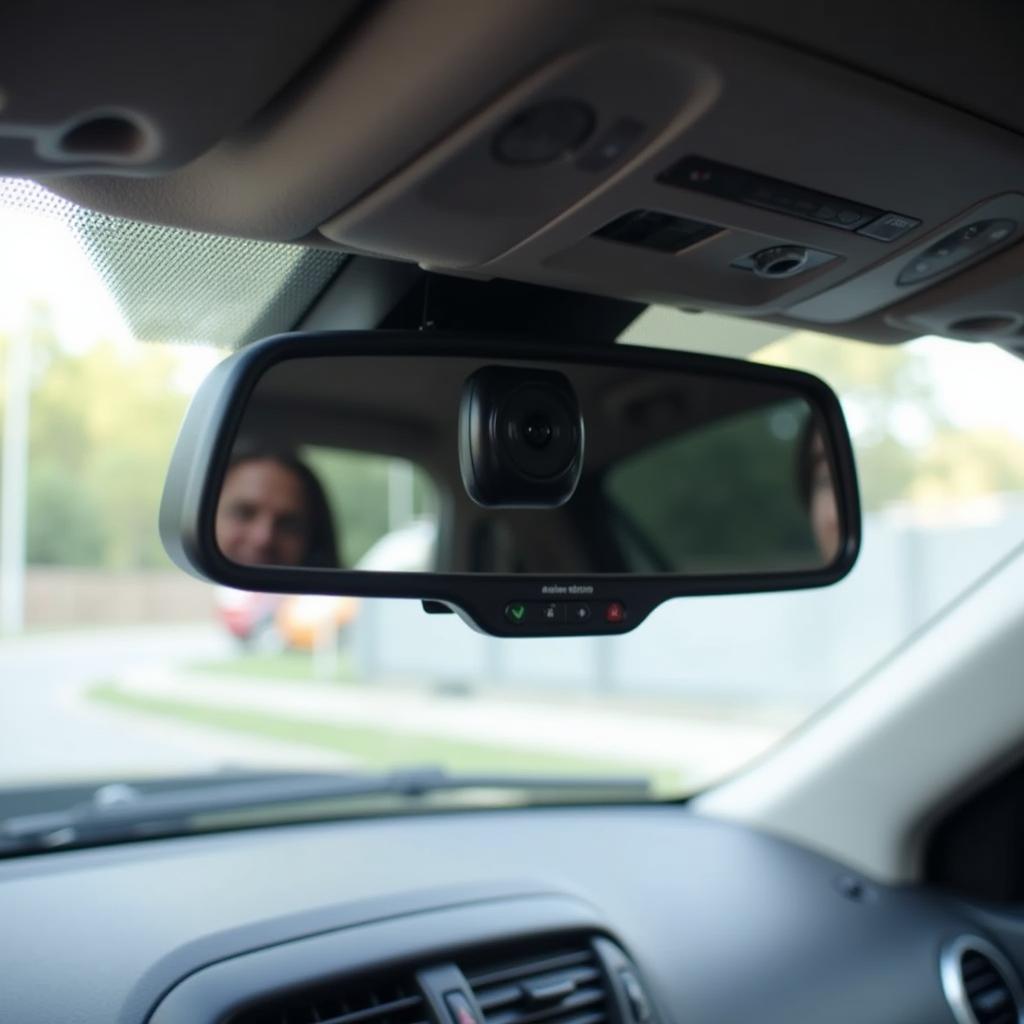The Toyota Yaris brake warning light can be a jarring sight, signaling potential issues with your braking system. Understanding what triggers this light and how to address it is crucial for your safety and the longevity of your vehicle. This comprehensive guide will delve into the common causes of the Toyota Yaris brake warning light, provide troubleshooting steps, and discuss solutions, empowering you to take control of the situation.
Understanding Your Toyota Yaris Brake System
The brake warning light is designed to alert you to several potential problems, from low brake fluid to more serious issues like a malfunctioning ABS system. Ignoring this warning can lead to costly repairs and compromise your safety on the road. It’s important to remember that while a simple issue like engaging the parking brake can trigger the light, more complex problems necessitate professional attention.
Common Causes of the Toyota Yaris Brake Warning Light
There are various reasons why your Toyota Yaris brake warning light might illuminate. These include:
- Low Brake Fluid: This is the most common culprit. Brake fluid levels naturally decrease over time due to wear and tear.
- Worn Brake Pads: As brake pads wear down, the brake fluid level drops, triggering the warning light.
- Parking Brake Engaged: Sometimes, the simplest explanation is the right one. Ensure your parking brake is fully disengaged.
- Faulty Brake Light Switch: A malfunctioning brake light switch can also trigger the warning light, even if the brakes are functioning correctly.
- ABS Issues: Problems with the Anti-lock Braking System (ABS), such as a faulty sensor or module, can illuminate the warning light.
Troubleshooting Your Toyota Yaris Brake Warning Light
If your brake warning light comes on, follow these steps to troubleshoot the problem:
- Check the Parking Brake: Ensure the parking brake is fully released.
- Inspect Brake Fluid Level: Locate the brake fluid reservoir under the hood and check the fluid level. If it’s low, add the correct type of brake fluid as specified in your owner’s manual.
- Check for Leaks: Inspect the brake lines and calipers for any signs of leakage. If you find a leak, seek professional repair immediately.
- Test Brake Pedal Feel: Pay attention to how the brake pedal feels. Does it feel spongy, hard, or normal? Any deviation from the usual feel warrants further investigation.
- Listen for Unusual Noises: While braking, listen for any grinding, squeaking, or scraping sounds. These could indicate worn brake pads or other issues.
 Checking Brake Fluid Level in a Toyota Yaris
Checking Brake Fluid Level in a Toyota Yaris
When to Seek Professional Help
While some issues can be addressed with simple DIY solutions, others require the expertise of a qualified mechanic. If you’ve checked the basics and the light persists, or if you experience any unusual braking behavior, it’s time to seek professional help. A professional can diagnose the problem using specialized diagnostic tools and perform necessary repairs.
Remote Diagnostics and Software Solutions for Toyota Yaris Brake Issues
In today’s technologically advanced world, remote diagnostics and software solutions are increasingly being used to address automotive issues. This technology allows technicians to access your vehicle’s data remotely, pinpoint the problem, and sometimes even implement software updates to rectify the issue without needing physical access to the vehicle. This can be particularly helpful for certain electronic issues related to the ABS system or other brake components.
“Remote diagnostics are revolutionizing the automotive repair industry,” says John Miller, a senior automotive engineer specializing in remote diagnostics. “It allows for quicker diagnosis and, in some cases, faster repairs, saving time and money for the car owner.”
Maintaining Your Toyota Yaris Brakes
Regular maintenance is crucial to preventing brake problems and ensuring optimal performance. This includes:
- Regular Brake Fluid Checks and Changes: Consult your owner’s manual for the recommended brake fluid change intervals.
- Brake Pad Inspections: Have your brake pads inspected regularly, especially if you hear any unusual noises or notice changes in braking performance.
- Brake System Flush: A brake system flush helps remove contaminants and moisture from the brake fluid, promoting the longevity of your brake system.
 Replacing Toyota Yaris Brake Pads
Replacing Toyota Yaris Brake Pads
“Preventive maintenance is key to avoiding costly brake repairs down the line,” advises Sarah Johnson, a certified mechanic with over 15 years of experience. “Regular checks and timely replacements can save you from headaches and ensure your safety on the road.”
Conclusion
The Toyota Yaris brake warning light should never be ignored. By understanding its potential causes and following the troubleshooting steps outlined in this guide, you can address minor issues and know when to seek professional help. Regular maintenance is also essential for preventing future problems and keeping your Toyota Yaris braking system in optimal condition. Addressing the brake warning light promptly ensures your safety and prevents potentially costly repairs. Don’t delay; take action today!
parking brake warning light chevy astro 2004
FAQ
-
What should I do if my Toyota Yaris brake warning light comes on? First, check the parking brake. If it’s disengaged, check your brake fluid level. If the level is low or you notice any leaks, seek professional help.
-
How often should I check my Toyota Yaris brake fluid level? It’s a good practice to check your brake fluid level at least once a month.
-
Can I drive my Toyota Yaris with the brake warning light on? While it’s possible to drive short distances, it’s not recommended. The warning light indicates a potential problem that could compromise your braking ability.
-
How much does it cost to fix a Toyota Yaris brake warning light issue? The cost varies depending on the underlying problem. A simple brake fluid top-up is inexpensive, while more complex repairs like ABS module replacement can be significantly more costly.
-
How can I prevent my Toyota Yaris brake warning light from coming on? Regular maintenance, including brake fluid checks and changes and timely brake pad replacements, is the best way to prevent brake warning light issues.
-
What is the role of the ABS system in my Toyota Yaris? The ABS system prevents the wheels from locking up during hard braking, allowing you to maintain steering control.
-
What kind of brake fluid should I use in my Toyota Yaris? Always consult your owner’s manual for the correct type of brake fluid. Using the wrong type can damage your brake system.


